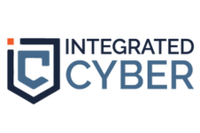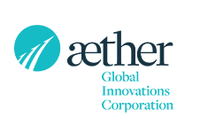Liberty Defense to Beta Test MIT Security Technology at MTCC
Bill Riker told INN about the beta testing of Liberty Defense’s security technology at the Metro Toronto Convention Center.
Last Thursday (September 26), security technology company Liberty Defense Holdings (TSXV:SCAN) announced that it will launch a beta test of its Hexwave technology at the 700,000 square foot Metro Toronto Convention Center (MTCC) in early 2020.
Hexwave is a security technology that detects metallic and non-metallic weapons through the use of 3D imaging and automatic threat-detection systems.
“This is a technology that has come out of the Massachusetts Institute of Technology (MIT) Lincoln Lab, and it is very specifically designed for the prevention of mass-attack weapons being brought into the facility,” Bill Riker, CEO of Liberty Defense, told the Investing News Network.
Since 2018, Liberty Defense has developed a relationship with MIT, where it formed an engineering team to apply the low-radar technology within urban security environments. The security technology incorporates both 3D imaging and machine learning to detect concealed weapons.
“The 3D imaging is a form of low-energy radar that is projected across a detection space,” said Riker. “It creates a three dimensional image — that 3D point cloud comes from that radar system — and that 3D data set has a lot of information on it, over 3,000 data points over a person’s body, for example.”
Riker elaborated on the artificial intelligence capabilities of the security technology.
“We use a form of deep neural network artificial intelligence to analyze that data and really zero in on an object on a person’s body,” said Riker. “This process enables us to do real-time detection and determination of people moving through a detection space.”
Beta testing for the Hexwave technology is expected to begin late 2019, with testing to continue into 2020. Testing will be predicated on real-life physical testing centers, such as stadiums and a wide cross section of other facilities.
Liberty Defense and MIT have secured a licensing agreement, which includes plans to commercialize the technology by 2020 after beta testing is complete, Riker added. With close to 40 years in the aerospace and defense industries, Riker discussed a pain point across security operations: mass shootings. This is something the company is aiming to address with its technology.
In 2019 so far, there have been over 360 mass shootings, an increase in the number of violent shootings compared to the annual average of 250, according to Riker.
“More significantly, the real concern here is other types of weapons — explosives — and, of course, firearms and different types of knives and other systems,” Riker said
Along with the MTCC, Liberty Defense has plans to undertake beta testing at Rogers Arena in Vancouver, British Columbia, shopping centers owned by Sleiman Enterprises, a Hindu temple, FC Bayern Munich’s Allianz Arena in Germany and the Virginia Division of Capitol Police, among other places.
As the disturbing prevalence of mass shootings increases, growth in the security market is projected to follow similar patterns. According to Grand View Research, by 2025 the physical security market is projected to reach US$292.4 billion. This is equal to a compound annual growth rate of 9.4 percent.
“We are working with venues across all four of these verticals that show that this capability can be universally applied and adapted to a facility’s concept of operations,” Riker said. “One of the things we’re most excited is this (security) capability is very modular.”
Don’t forget to follow us @INN_Technology for real-time news updates!
Securities Disclosure: I, Dorothy Neufeld, hold no direct investment interest in any company mentioned in this article.
Editorial Disclosure: The Investing News Network does not guarantee the accuracy or thoroughness of the information reported in the interviews it conducts. The opinions expressed in these interviews do not reflect the opinions of the Investing News Network and do not constitute investment advice. All readers are encouraged to perform their own due diligence.

